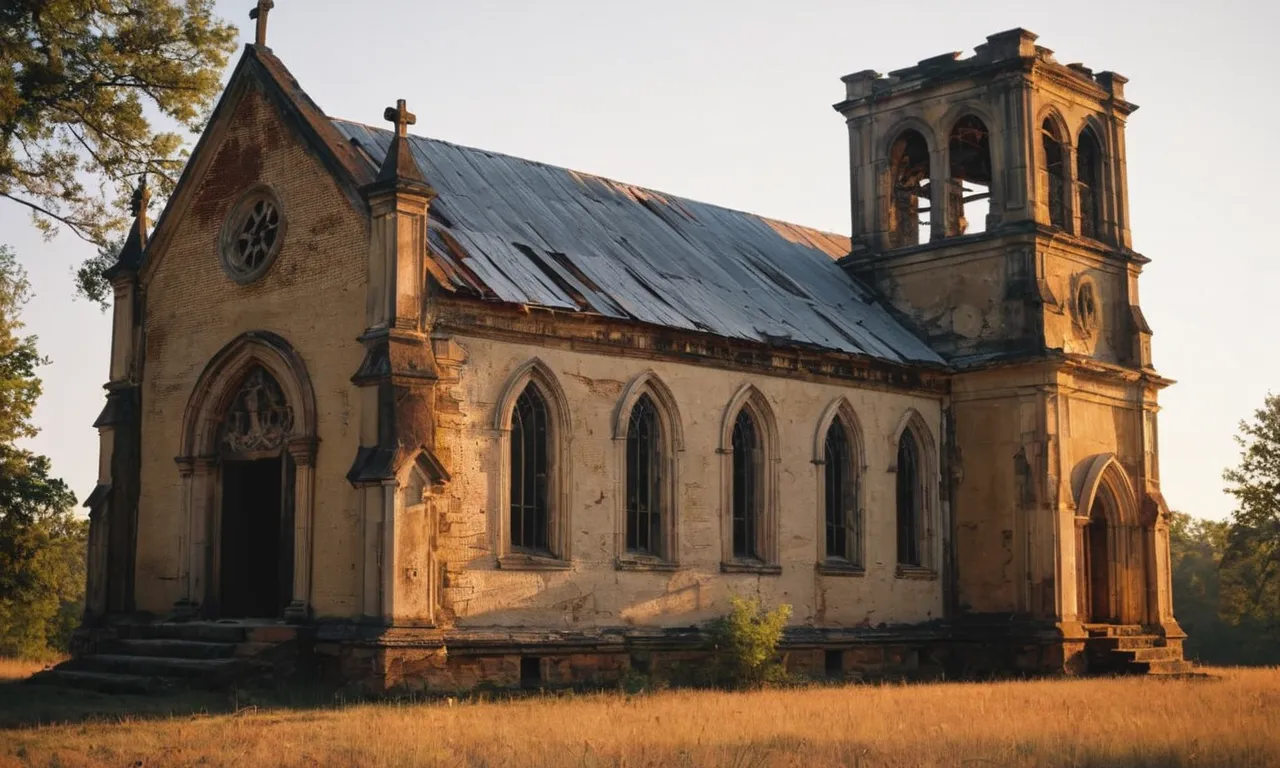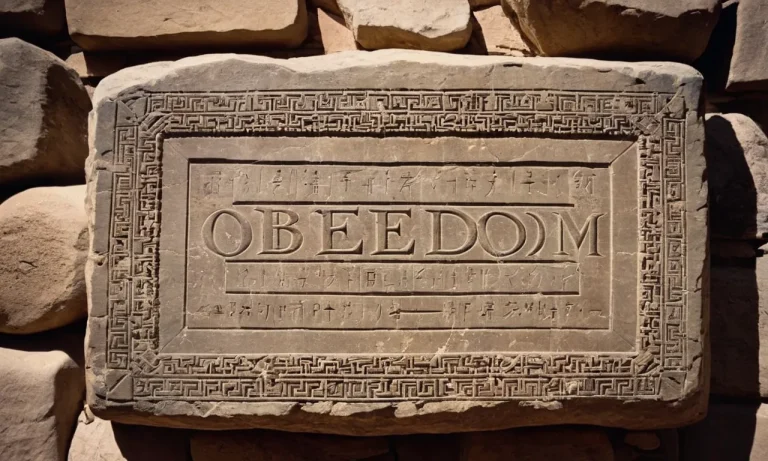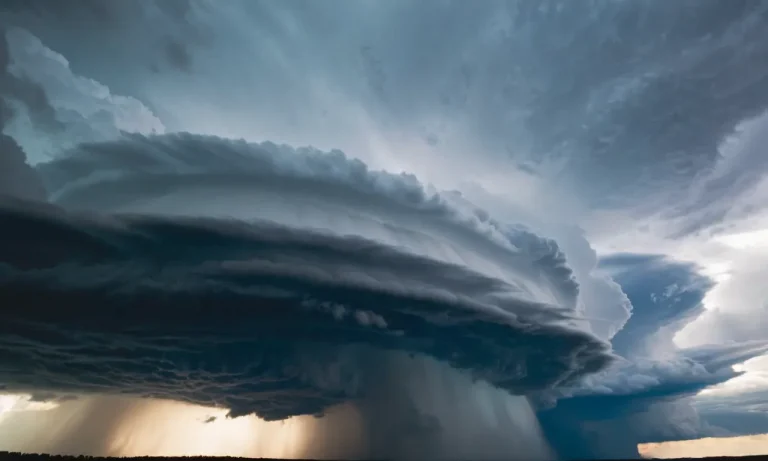Why Did God Destroy Shiloh?
The destruction of the holy city of Shiloh by God is a momentous event in the Old Testament that raises many questions for Bible readers today. In this comprehensive article, we will analyze the Scriptural accounts to uncover the reasons behind this shocking divine judgement on a place of worship.
If you’re short on time, here’s a quick answer to your question: God allowed the Philistines to destroy Shiloh because of the wickedness and corruption of the priests and people who were supposed to be leading the worship there.
The Significance of Shiloh in the Bible
Shiloh as the Early Location of the Tabernacle
After the Israelites conquered the land of Canaan, the tabernacle and the ark of the covenant were set up at Shiloh (Joshua 18:1). Shiloh was centrally located in the allotted territories of Ephraim and Manasseh, making it accessible to the other Israelite tribes.
As the site of the tabernacle, Shiloh became the center of Israel’s religious life and rituals for over 300 years, from around 1400 BC to 1050 BC. Worshippers would make pilgrimages there to present offerings and sacrifices to God (1 Samuel 1:3).
So Shiloh gained spiritual meaning as the place where God’s presence resided from the time Israel entered Canaan until shortly before establishing Jerusalem as its capital.
Shiloh as the Religious Capital in Judges
The book of Judges mentions Shiloh multiple times as the religious center of Israel. Judges 21 states that the “house of God” was at Shiloh, where the Israelites gathered to worship and to seek guidance from the Lord (Judges 21:19).
It was at Shiloh where Joshua divided the remaining land among the seven Israelite tribes who had not yet received their inheritance (Joshua 18:1-10). And even after the Philistines captured the ark of the covenant in battle, they returned it to Israel at Shiloh (1 Samuel 6:14-15).
So before Israel’s kings or God’s temple in Jerusalem, Shiloh served as the most important religious locale in Israelite history.
The Sins of Eli’s Sons
Sexual Immorality
Eli’s sons Hophni and Phinehas abused their priestly office by engaging in sexual immorality with the women who served at the entrance to the tent of meeting. Their wicked behavior is described in 1 Samuel 2:22: “Now Eli, who was very old, heard about everything his sons were doing to all Israel and how they slept with the women who served at the entrance to the tent of meeting.”
Their sexual sins were offensive to God and set a horrible example for the people.
Hophni and Phinehas showed no regard for the Lord or His law. They violated the clear commands against adultery and sexual immorality (Exodus 20:14). As priests, they were supposed to be spiritual leaders and examples of holiness.
Instead, they corrupted themselves and disgraced the priesthood through their lustful appetites.
Abuse of Sacrificial Offerings
In addition to their sexual immorality, Eli’s sons showed contempt for the Lord’s sacrificial system by taking more than their rightful share of the meat offerings presented by the Israelites. Although the priests were permitted to take a portion for food, Hophni and Phinehas took advantage and indulged in gluttony.
According to 1 Samuel 2:12-17, they treated the offerings with contempt by taking the meat before the fat portions had been burned off, as required by law. They showed their greed and lack of respect for God by taking whatever meat they wanted, even the best parts, before the Lord received His portion.
Furthermore, their actions caused many people to despise the sacrifices to the Lord (1 Samuel 2:17). By abusing their priestly position for their own gluttonous gain, Hophni and Phinehas turned people away from worshipping God.
The sins of Eli’s sons provoked the judgment of God against them. Their wickedness led to their deaths as a sign of God’s displeasure at their dishonorable conduct in the priestly office. Their appalling behavior highlighted the need for righteous leadership and pointed ahead to the Messiah who would one day come as the perfect high priest.
The Prophecy Against Shiloh
The Oracle of Judgment in 1 Samuel 2-3
In 1 Samuel 2-3, we find an oracle of judgment against the house of Eli and the tabernacle at Shiloh. As the priest and judge over Israel, Eli and his sons Hophni and Phinehas were corrupt and disobeyed God’s laws regarding the sacrifices and offerings brought to the tabernacle (1 Samuel 2:12-17).
Despite warnings from God (1 Samuel 2:27-36), Eli did not restrain his sons, so God sent a “man of God” to prophecy that Eli’s family line would come to a tragic end and the strength of his house would be broken by God Himself (1 Samuel 2:31-33).
This came to pass when the Philistines attacked Israel, captured the ark of the covenant, and killed Hophni and Phinehas (1 Samuel 4:10-11). When Eli heard the news, he fell back off his chair and died from a broken neck at the age of 98 (1 Samuel 4:18).
Truly a tragic ending to Eli’s family and priestly lineage.
Furthermore, 1 Samuel 3 records God calling the young Samuel three times in the night. At Eli’s urging, Samuel responds and God tells him that He is about to punish Eli’s family and fulfill the earlier oracle against the house of Eli and Shiloh, saying “I am about to do something in Israel that will shake the ears of everyone who hears it” (1 Samuel 3:11).
So through Samuel, God again pronounces judgment on Eli’s family and the tabernacle at Shiloh, which came to pass shortly thereafter.
Jeremiah’s Reference to the Desolation of Shiloh
The prophet Jeremiah provides insight into God’s later destruction of Shiloh itself. When warning the people of Judah and Jerusalem that God would likewise judge them and destroy Jerusalem if they did not repent, Jeremiah declared, “Go now to the place in Shiloh where I first made a dwelling for my Name, and see what I did to it because of the wickedness of my people Israel” (Jeremiah 7:12).
This indicates that after the deaths of Eli and his sons and the loss of the ark, God eventually allowed Shiloh to be destroyed at a later point due to the sins and rebellion of His people.
Jeremiah uses Shiloh’s devastation as a vivid object lesson that just as God judged Shiloh, the first place of worship He established for Israel, so God will judge Jerusalem and the temple if Judah continues in sin and idolatry.
The sobering lesson and warning is clear – if God did not spare the tabernacle at Shiloh from destruction due to the wickedness of His people, neither will He spare Jerusalem and the more glorious temple if Judah persists in evil and fails to repent.
The Fulfillment of Judgment Against Shiloh
The Philistine Capture of the Ark
As recorded in 1 Samuel 4, the Philistines defeated the Israelites in battle and captured the Ark of the Covenant from Shiloh. This was a devastating blow, as the Ark represented God’s presence with His people.
The capture of the Ark followed years of spiritual rebellion and idolatry by the Israelites.
According to the biblical account, when the news reached Shiloh that the Ark had been taken, the priest Eli fell backward off his seat and died from a broken neck. Phinehas’s wife went into labor when she heard the news and named her son Ichabod, meaning “the glory has departed from Israel” (1 Samuel 4:19-22).
This captures the utter despair that must have gripped the city.
The loss of the Ark was the fulfillment of a prophecy given to Eli decades earlier, recorded in 1 Samuel 2, where God foretold that Eli’s wicked sons would die on the same day, that Eli’s strength would fail him, and that God would raise up a faithful priest in their place.
All of this pointed to God’s judgment on the house of Eli and the priesthood for their unfaithfulness while serving at the tabernacle in Shiloh.
Archaeological Evidence of Destruction
The biblical account lines up with archaeological evidence showing a violent destruction of Shiloh during this general time period in the 11th century BC. Excavations revealed a catastrophic burning layer consistent with the town being looted and set ablaze.
This likely occurred when the Philistines overran the region following their victory over Israel and capture of the Ark. The American Colony and Danish archaeological expeditions in the 1920s uncovered walls, gates, and an impressive three-room Israelite sanctuary consistent with the tabernacle priests served at Shiloh.
Of note, the excavators discovered accumulations of ashes and soot on the floors, indicating that buildings were burned and destroyed. Storage jars full of burnt grain were also uncovered, evidencing that the city was suddenly overthrown, without time for inhabitants to use their harvested grain.
The site has laid abandoned from that time onward – a haunting picture of God’s judgment fulfilled. For over 3,000 years since, as foretold in Jeremiah 7:12-14 and 26:4-9, no city has been rebuilt on Shiloh’s ruins.
The once-thriving religious center of Israel for over 300 years during the judges period sat devastated, just as God’s prophets warned.
Theological Implications for Worship Today
God Demands Holiness from Worship Leaders
The destruction of Shiloh, once the central place of worship for ancient Israel, contains an important lesson for worship leaders today. As 1 Samuel depicts, God refused to tolerate the wickedness and corruption of Eli’s sons, who were priests at Shiloh.
Their sexual immorality and greed while leading worship incurred God’s wrath upon the whole community (1 Samuel 2-4). This sober reminder teaches us that God demands moral integrity and holiness from those who lead His people in worship.
Though God is patient and gracious, He will ultimately judge leaders who dishonor His name through unethical conduct or impure lifestyles. As Paul says, “Flee from sexual immorality” and “pursue righteousness, faith, love and peace” (1 Cor 6:18; 2 Tim 2:22).
Today’s worship leaders must heed this warning and lead lives of integrity and moral purity as they come before a holy God.
Judgment Can Come Upon Even Sacred Spaces
Shiloh’s destruction also warns us that no place of worship is immune from God’s judgment if wickedness is left unchecked. For over 300 years, Shiloh was the central sanctuary for Israel’s corporate worship and sacrifices (Joshua 18:1; 1 Samuel 1:3).
Yet not even its sacred history and religious importance could protect it once the priests leading worship there committed grievous sins. God is no respecter of places (Acts 10:34); His holiness demands justice regardless of a location’s reputation.
Jesus Himself warned the religious leaders of his day that God could destroy the temple in Jerusalem if it became corrupted (Matthew 24:2). This should give today’s worship leaders great pause; we must not think our churches and worship spaces are beyond God’s judgment.
Our worship integrity depends on upholding God’s standards.
In sum, Shiloh stands as a perpetual warning that God requires holiness and moral purity from those who lead worship, and no church or sanctuary is exempt from divine justice. May we as leaders heed this lesson well!
Conclusion
The sobering ruin of Shiloh stands as a perpetual reminder that God does not tolerate sin forever, even amongst those charged with leading His people in worship. As Christian believers today, we must examine our own hearts and congregations to see that holiness and sincerity mark our devotion to God, so that we avoid divine discipline.
Shiloh’s devastation occurred because of the hypocrisy and corruption of Eli’s family, but God graciously raised up Samuel to lead Israel back to faithfulness. We can therefore have hope that even after judgement, God remains faithful to those who truly follow Him.








